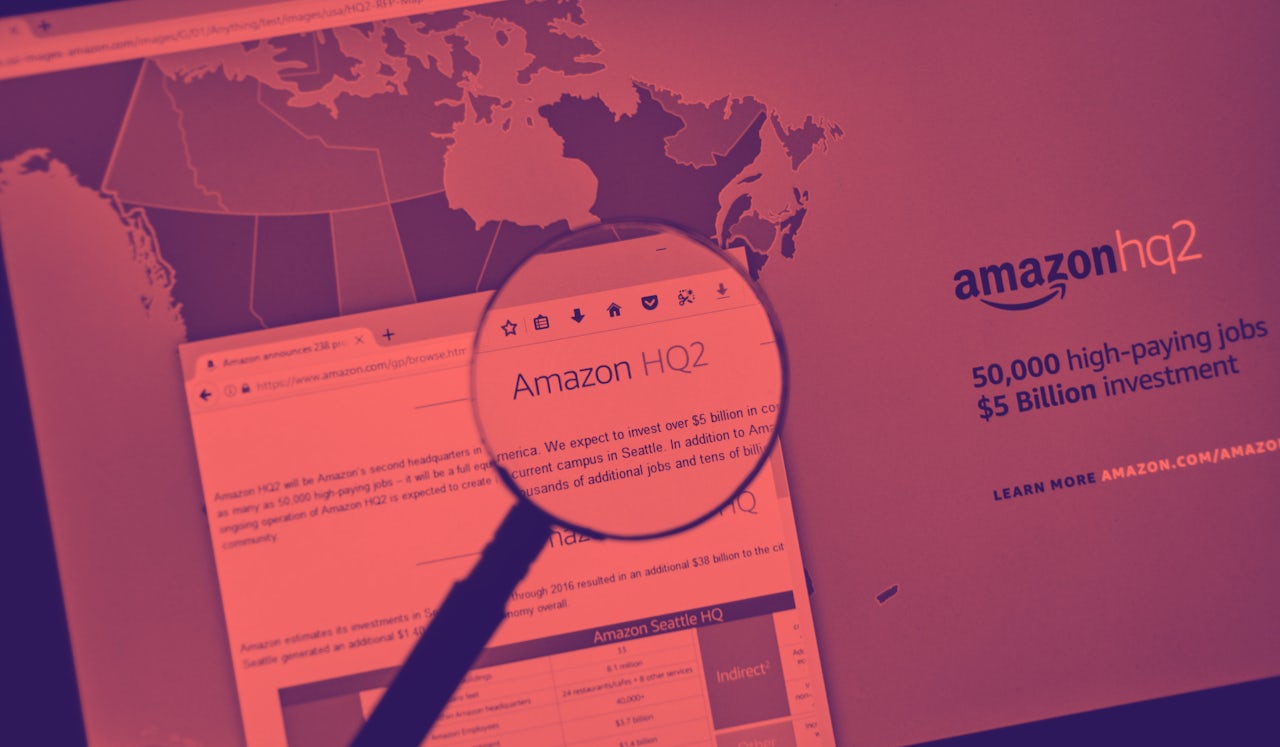The Triangle area of North Carolina, where I live, is a economic hub of the southeast. Between Chapel Hill, Raleigh, and Durham, we’re home to the three major research universities, the state government, large companies such as IBM and Epic Games, a handful of large pharmaceutical companies I’d rather not think about, as well as a glut of small businesses and a significant arts scene. As long as our horrific state legislature doesn’t succeed in re-instating feudalism or whatever heinous shit they’re trying to pull these days, we’re going to be pretty okay.
Even still, our state and local governments, just like countless other state and local governments, is obsessed with bringing large tech companies to the area and promising fantabuous incentives to them in the process. While trying to convince Apple to build a new campus in the area, the state offered to let the company keep up to 90 percent of its employees’ withholding tax payments as well as a 30-year discount on the company’s property taxes. Despite being described as a “done deal” to the local news station WRAL, it fell through and Apple never came. Then, when Amazon was doing its reality-show-style search for a new headquarters, North Carolina offered the company $277 million to plop its HQ2 down in our state, and one developer involved with the proposal wanted to re-engineer the entirety of downtown Raleigh to create an “urban campus” for the company. That deal, while nuts, was not nuts enough — New York and Washington, D.C. offered Amazon $1.5 billion and $573 million, respectively, in their successful bids to host the company’s headquarters.
But do such accomodations to Big Tech actually do anything for a city’s economy? Not at all, says a new study conducted by the Tax Policy Center, which found that when governments kowtow to mega-companies in the name of “economic development,” it can actually have a negative effect on the local economy.
When you’re throwing every incentive but free kitchen sinks at a company like Amazon or Apple in hopes of luring them to your town, the idea is that they’re going to create jobs, and both those jobs as well as the company itself will raise an area’s taxes, bring in new residents and other new businesses, and generally stimulate the local economy. However, the Tax Policy Center’s data shows that “changes in the number of jobs in a county or metropolitan area” after a big company moves in “were essentially zero.” So if you’re a local government who’s already given the farm away to get more jobs in your county, not only do you end up with the same amount of jobs as you had before, but you’ve just spent a bunch of money in the form of tax breaks for the privilege of gaining zero jobs. Since that money has to be made up somewhere, and the Tax Policy Center found that most local governments turned to slashing public assistance programs and raising sales taxes — both of which adversely affect the poor, thereby ultimately hurting the people who were supposed to reap the trickle-down benefits.
The reason for this is simple — even if a company brings in, say, 50,000 jobs to an area, if there are a million people living there, only half a percent of them end up with a new job. Many more of those people instead feel the economic strain and may end up leaving. (As a corollary, the Tax Policy Center notes that the actual drivers of job growth were offering job skills training to young people and encouraging people to create their own businesses, not offering to let some CEO turn your municipality into Robocop.)
Still, the myth of huge tech companies driving economic growth is a pervasive one. This may have to do with the fact that from 2009 until this August, just four stocks — Facebook, Amazon, Netflix, and Google — provided, per the finance publication The Motley Fool, “half of the S&P 500’s year-to-date-gains.” In other words, tech companies have played a massive role in creating the sort of hollow economic growth that is post-Recession America’s specialty, and have found themselves in the too-big-to-fail position of being the only thing standing between us and another recession.
The warning signs are already here. Below, I’ve superimposed the six-month charts showing the performance of the S&P 500 — the weighted index that many economists use to measure our overall economic health — alongside the six-month stock charts for Google parent company Alphabet as well as Amazon (Amazon is in purple, Google’s in red, and the S&P’s in green; I left Facebook out because its months-long self-own torpedoed its stock price in July).
While my model is slightly imprecise, the alignment is alarming — especially when you dig into the actual dates. Amazon stock hit its peak in late September, after which it declined and has yet to recover. Google, meanwhile, began sinking in early October. The S&P, meanwhile, began declining along with Google before all three started dropping precipitously on October 9. Given the public’s mounting distate for Big Tech, it’s unsurprising that such companies’ stock prices have declined and dragged the S&P along with them. (If it’s the S&P that’s actually dragging them down, that would be a good thing — it would mean that four companies aren’t holding the entire economy hostage.)
Governments, from the local to national level, have a massive incentive to give such tech behemoths whatever they want — from offering them almost nonexistent tax rates to looking the other way as they monopolize their respective fields while running roughshod over our right to individual privacy — because If they fail, so does the whole house of cards that we’ve built around them.

